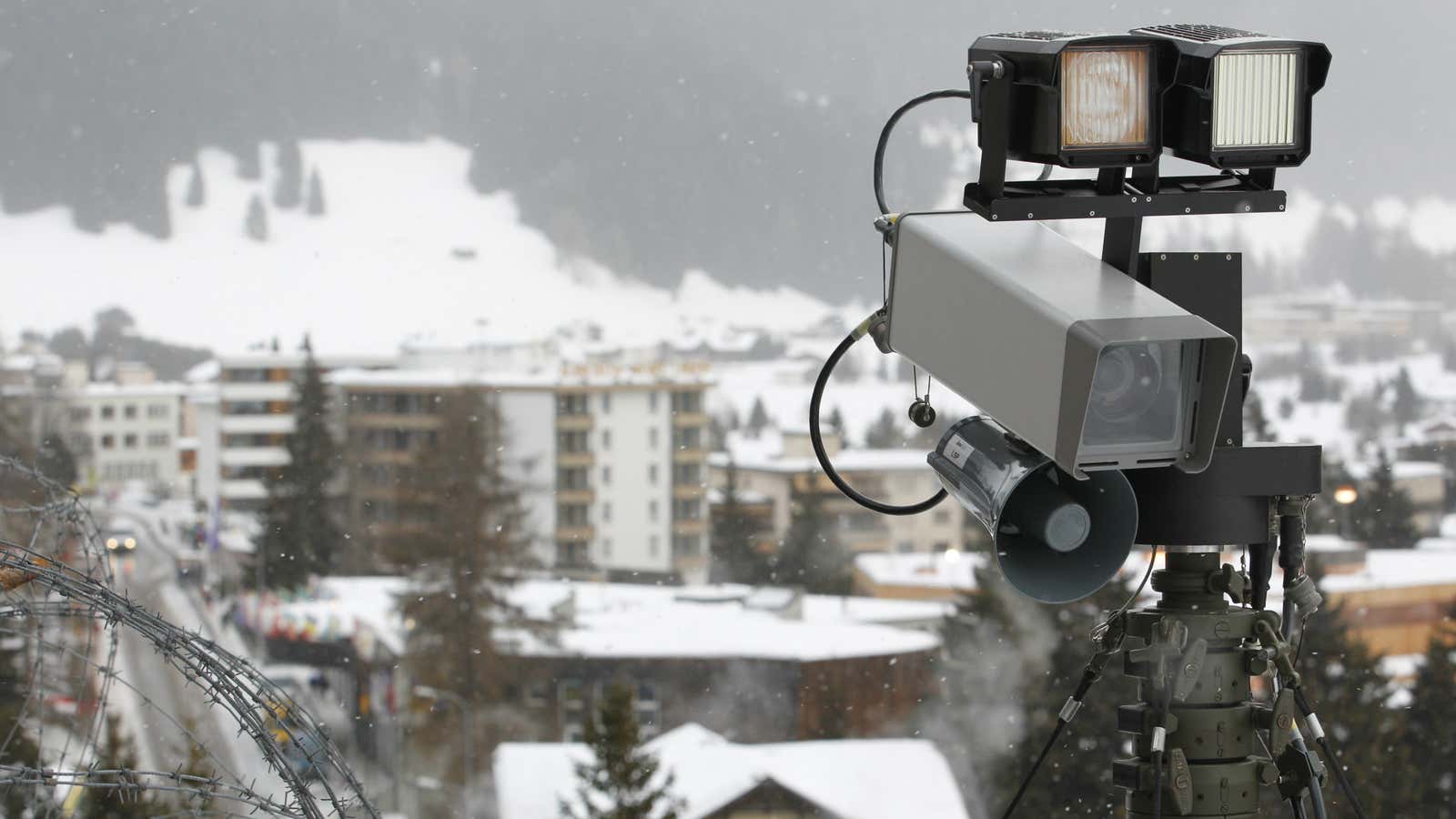While most of the West continues to debate how its governments can best balance privacy and security, voters in Switzerland have approved more state surveillance—not less of it.
Yesterday (Sept. 25), 65.5% of voters agreed to accept a new law that would give intelligence services more power to tap phones and emails, and use bugs and hidden cameras. It would, the BBC writes,
allow the Federal Intelligence Service and other agencies to put suspects under electronic surveillance if authorised by a court, the defence ministry and the cabinet.
Admittedly, the Swiss are starting from a low base. Surveillance in Switzerland has been tightly restricted since the end of the Cold War, when it emerged that the government had files of hundreds of thousands of citizens, including their political affiliations. Today, notes the BBC, “even Google Street View is restricted because of Swiss privacy laws.”
This stands in contrast to, say, the US, where the National Security Agency has an extensive program of monitoring communications. The Swiss government said the new measures would be deployed only once a month, for monitoring the highest-priority suspects, according to The Guardian.
“It’s letting intelligence services do their job,” Yannick Buttet, vice president of the Christian Democratic party, said of the new law.
Sunday’s result was largely expected by pollsters, and suggests that recent terror attacks that have plagued Europe shifted opinion on how much government surveillance is proportionate.
The spate of attacks “made it difficult for us to convince citizens that more surveillance doesn’t necessarily mean higher security,” said Tamara Funiciello, president of the Young Socialists party and an opponent of the bill. Lisa Mazzone, a Green Party lawmaker in Switzerland’s national council, said the bill relied on “a campaign of fear” to sway voters.




